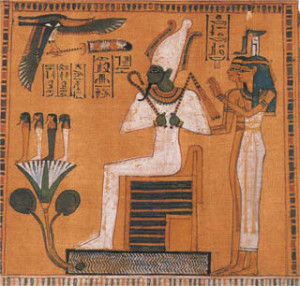









Bart Ehrman is a slippery type.
Existing near one end of the spectrum on biblical scholarship (where extraordinarily conservative fundamentalism is at one end and unreasonable scepticism for the sake of novelty, notoriety and ratings is at the other – you figure out which end Ehrman is at), Ehrman insists that he’s not out to destroy Christianity. Now, he’s definitely out to deny the resurrection of Jesus, he doesn’t think miracles have ever occurred, he doesn’t even affirm belief in God, and he thinks that the basic New Testament story about Jesus is false. But he’s not out to destroy Christianity.
How can this be? Like this: He starts out with a view of Scripture that most Christians don’t hold: Inerrancy. Then in the space of a couple of sentence he shifts (without telling the reader) to belief that what the Bible says is true. And then he moves (again without telling the reader) to the view that we should trust the Bible and not God. And since this last view is not a historical Christian view anyway, by attacking all the things I listed earlier, he’s not really attacking Christianity at all.
Here’s what he says. Oh, and because it won’t be obvious to those who are familiar with Ehrman’s work, where he uses the phrase “biblical scholarship,” he’s talking about his own work. Speaking of Christians who think that Christians should believe the teaching of the Bible, he says:
Throughout most of history most Christian thinkers would have been seen this view as theological nonsense. Or blasphemy. The Bible was never to be an object of faith. God through Christ was. Being a Christian meant believing in Christ, not believing in the Bible.
Here are the historical realities. Christianity existed before the Bible came into being: no one decided that our twenty-seven books of the New Testament should be “the” Christian Scripture until three hundred years after the death of the apostles. Since that time Christianity has existed in places where there were no Bibles to be found, where no one could read the Bible, where no one correctly understood the Bible. Yet it has existed. Christianity does not stand or fall with the Bible.
And so, biblical scholarship will not destroy Christianity. It might de-convert people away from a modern form of fundamentalist belief. But that might be a very good thing indeed.
So apparently, teaching people that what the Bible says is false and the Bible is unreliable is fine from a Christian perspective, because we’re supposed to trust God and not the Bible, and the early Christians didn’t have the compiled Bible that we now have?
That really takes the cake. Who, exactly, is saying that we should trust in the Bible instead of God? And while it’s true that the Bible wasn’t compiled for some time, it’s not true that the individual books weren’t written in the first century (even the most zealous of liberal wouldn’t push for later than the mid second century). Even the most liberal of New Testament critics must grant this much in order is to remain within the pale of respectability. It may be sexy and hip to throw out the canard that the Bible represents a much later faith, a faith of the power brokers in church history, that was imposed on the Christian world, but please Dr Ehrman. To play innocent on grounds like this is frankly embarrassing.
Glenn Peoples
 Here it is, part two of the series on philosophy of mind, In Search of the Soul. In this episode I introduce the viewpoint called emergentism, and I explore the argument for dualism from free will.
Here it is, part two of the series on philosophy of mind, In Search of the Soul. In this episode I introduce the viewpoint called emergentism, and I explore the argument for dualism from free will.
 In this episode of the Say Hello to my Little Friend podcast I start a four part series on philosophy of mind. I know I recently said that it would be a three part series, but hey, even four parts isn’t really enough to give the subject the full treatment it deserves. In part one I start with the dualist end of the spectrum. Today it’s Cartesian/Platonic dualism, which I take to be the most popular variety.
In this episode of the Say Hello to my Little Friend podcast I start a four part series on philosophy of mind. I know I recently said that it would be a three part series, but hey, even four parts isn’t really enough to give the subject the full treatment it deserves. In part one I start with the dualist end of the spectrum. Today it’s Cartesian/Platonic dualism, which I take to be the most popular variety.
 What does the death of some of the first followers of Jesus’ tell us about what they knew?
What does the death of some of the first followers of Jesus’ tell us about what they knew? It has finally arrived, episode 25. It’s a bit of a different topic for me, not very philosophical, I guess a little theological, just some ideas that have been on my mind a bit lately about how we should approach the world and what it means to be a Christian in it.
It has finally arrived, episode 25. It’s a bit of a different topic for me, not very philosophical, I guess a little theological, just some ideas that have been on my mind a bit lately about how we should approach the world and what it means to be a Christian in it. Is Christian hope all about going to heaven, rather than you-know-where?
Is Christian hope all about going to heaven, rather than you-know-where? Did the Church conspire to hide the truth about other Gospels that did not make it into the Bible?
Did the Church conspire to hide the truth about other Gospels that did not make it into the Bible? Is Jesus just Osiris with a new face? In Episode 19 I look at the sceptical argument claiming that Christianity was really just a collection of beliefs borrowed from pagan religions, and that Jesus was just a re-hash of one or many other Messiah or god-man figures. As there would be no way to deal with all of these other religions in one episode, I’ve chosen to use the example of the ancient Egyptian deity Osiris. In short, the sceptical argument is not particularly well supported by the facts.
Is Jesus just Osiris with a new face? In Episode 19 I look at the sceptical argument claiming that Christianity was really just a collection of beliefs borrowed from pagan religions, and that Jesus was just a re-hash of one or many other Messiah or god-man figures. As there would be no way to deal with all of these other religions in one episode, I’ve chosen to use the example of the ancient Egyptian deity Osiris. In short, the sceptical argument is not particularly well supported by the facts. Here it is, Episode 18. Here I draw on the work of the fourth century bishop of Alexandria, Athanasius. His work called The Incarnation of the Word is my all-time favourite work from the Church Fathers, and I think it gives us excellent theological reasons for adopting annihilationism. Along the way, it invites a theological storm over what it meant for Christ to become subject to death as one of us.
Here it is, Episode 18. Here I draw on the work of the fourth century bishop of Alexandria, Athanasius. His work called The Incarnation of the Word is my all-time favourite work from the Church Fathers, and I think it gives us excellent theological reasons for adopting annihilationism. Along the way, it invites a theological storm over what it meant for Christ to become subject to death as one of us.